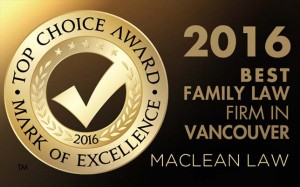Custody Access Report 211 Lawyers Attacking and Defending 211 Reports
MacLean law’s custody access report 211 lawyers know a section 211 custody and access report and parenting capacity report can help settle cases and help parents move forward if properly done. However, the judge makes the decision on what is in the best interests of a child not the psychologist hired by custody access report 211 lawyers. Our highly experienced custody access report 211 lawyers handle cases where we support the findings and recommendations of the section 211 report author in negotiations to settle or at mediations and trials. However, our custody access report section 211 lawyers also get involved in other cases where we think the section 211 expert has got in wrong wither through bad technique such as failure to interview witnesses, misquoting witnesses, improperly assessing psychological issues and test reports or making unfounded conclusions that go to the ultimate issue attack the report. If you have a custody dispute involving a section 211 report and need guidance call us at any of our 4 offices across Bc toll free at 1-877-602-9900 .

Attacking Flawed Section 211 Custody and Access Reports
Our experienced custody access report 211 lawyers led by the intense and tenacious Lorne N MacLean, QC often have experts critique a section 211 custody access report for flaws in methodology and conclusions. The critique expert can review the section 211 author’s file and testing results to see how good or bad the report is. Our skilled custody access report 211 lawyers will also demand the file of the section 211 report author in advance of trial to ensure the notes match the facts set out in the report and this file can be reviewed by a critique expert.
211 Critique Reports Not Allowed
In the last few years our custody access report 211 lawyers found courts have been unwilling to allow critique experts to testify unlike other jurisdictions. The court feels the section 211 report author is intended to be a neutral expert to assist the court. We often argue that a section 211 custody and access report author can act as eyes and ears for the court but should not act as the brain in deciding the issue of what is in the best interests of children. Courts must review the expert reports and watch the expert be cross examined on their methodology and recommendations to ensure justice is done in the best interests of the children.

There may be exceptions to refusing to let critique experts testify such as bias or general unsatisfactory methodology by the section 211 report author. Meet with our top rated custody access report 211 lawyers if you have a case involving a section 211 custody and access report and get help from the lawyers from BC’s biggest family law firm and its custody access report 211 lawyers .
What is A section 211 Custody and Access Report?
Section 211 reports may be ordered by the court under the authority of section 211 of the Family Law Act, to prepare written reports that assist judges to make decisions on guardianship, parental responsibilities, parenting time and contact. The reports are not automatic and they can costs $7500-$15,000 often split between two parties but potentially paid for up from t by one if their is a income disparity between the the spouses. These reports are intended to provide objective information to the court about your child and his or her family relationships. Through this assessment and report process, parties locked in a custody dispute may be able to resolve their issues, meet the best interests of their child, and not require further assistance from court. The report can help parents be the best parents they can be.
Recent Case says No Critique Expert Can Testify
In the recent case of A.R. v. A.V.R 2016 BCSC 629 Mr Justice Funt held as follows:
[1] THE COURT: In these proceedings, a section 211 report has been prepared by a court appointed expert. The expert was asked to conduct a “full assessment of the needs of the children (two young boys) and the ability and willingness of the parties to satisfy their needs.” The report was prepared and delivered to the parties some months ago.
[2] At this late stage (the third day of a five day scheduled trial), the respondent has obtained a report that serves to critique the section 211 report.
[3] The respondent wishes a ruling as to whether the critique report will be admissible, and whether its author may testify with respect to the critique report.
[4] The Court notes that a section 211 report does not bind the Court. The Court’s overarching duty is to the best interests of the child. In many cases, a section 211 report provides considerable assistance to the Court by serving as its “eyes and ears” with respect to investigating matter and providing advice as to the best interests of a child.
[5] The jurisprudence reflects the rule that critique reports are not admissible: Hejzlar v. Mitchell-Hejzlar, 2010 BCSC 1139; L.C.T. v. R.K., 2015 BCSC 2378.
[6] In the case at bar, I see no reason to depart from this rule. I agree with Justice Burnyeat in Hejzlar that a critique report is contrary to the nature and purpose of a section 15 (now section 211) report (at para. 15).
[7] Our Court of Appeal has stated that the right to cross-examine a court-appointed investigator (such as the author of a section 211 report) “is an important safeguard integral to the custody and access process”: K.M.W. v. L.J.W., 2010 BCCA 572 at para 62.
[8] The respondent has stated that he wishes to cross-examine the expert who prepared the section 211 report. The Court will be directing the section 211 expert to attend the trial upon the conclusion of the evidence of the parties. As part of his cross-examination, the respondent, if he wishes, may put propositions to the section 211 expert based on the information from his expert.
[9] After hearing the evidence of the parties, the Court may also have some questions for the section 211 expert. At that stage, the Court is in the best position to take advantage of the assistance of a section 211 expert.
[10] To conclude, the Court will not admit the critique report nor allow its author to testify with respect to the critique report.








